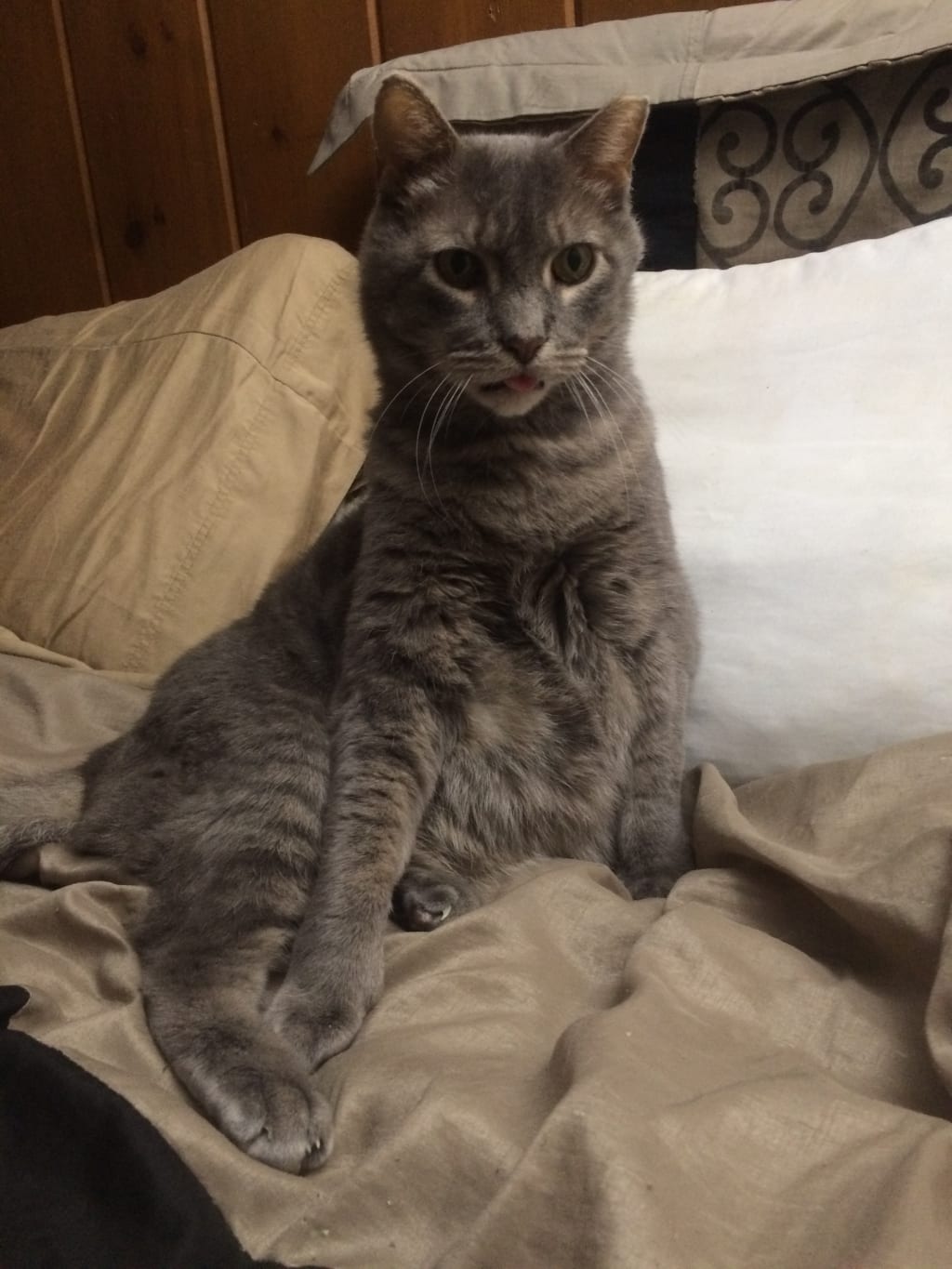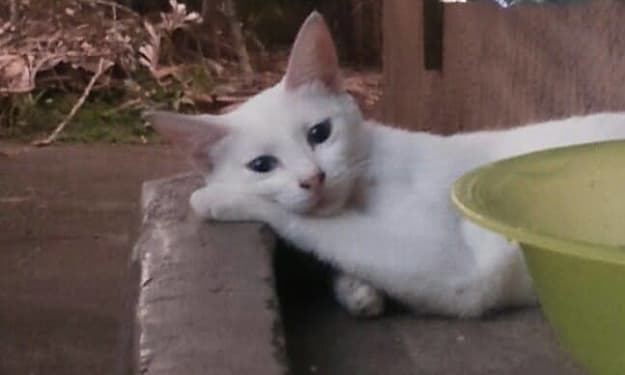
For as long as cats have been a wonderful family pet in our home, there is the age old question that runs in everyone’s mind:
Why do cats do that?
It’s true, that a cat;s strange actions and behavior at times are what makes us love the feline companions even more. However, sometimes it just seems totally weird and out of place.
Here is a guide to why your cat does that.
The first thing you need to know is that cats have been around a very long time, and they have always relied on certain actions to survive as the companions we know and love today. Not only were they the predators, but also prey to bigger animals than they. They have developed skills that we still see in cats, whether they're the therapy loving animals in our homes, or those who still live in the wild.
1: Your Cat Climbing to High Places
Over millions of years of breeding, there are many things we will see our therapeutic feline friends do today that, although they don't really need anymore living in our homes, their ancestors needed to survive in the wild, and has been put in our cat's DNA today. One of the many things you may see Snowball or Fluffy doing today that doesn't quite make sense in our eyes is climbing to the highest places they can find in your household.
This is due to their ancestors needing to observe their prey. Climbing to high places allowed them to scope their area better, surveying their environment, and be able to spot their next meal in order to eat.
While our feline companions are well fed and don't have to worry about stalking their prey, it is still encrypted into their DNA to climb onto your bookshelf or the top the kitchen cupboards to observe their territory.
2: They eat so little and so many times a day.
Have you ever noticed your cat going to the food bowl multiple times a day? And yet, they eat so little within those many trips. Why is that? Why don't they eat a whole bunch in one sitting and make less trips to the food dish?
This once again has to do with the surviving instincts of their ancestors that have been bred into our feline friends today. Most cats we love so much are pretty small in size, making their prey even smaller. With this said, they had to catch what they could many times throughout the day. This is why your kitty prefers to eat small portions with many trips to the food dish.
3: They stick their heads and paws in the smallest and random places.
When you've walked in the room and found your feline companion sticking his paw in a small hole through the box your delivery just came in, it's almost like catching them with their hand in the cookie jar. Or they stick their head in plastic bags, curious as to what might be inside.
This has to do with their ancestor's prey. As mentioned before, a cat's prey tends to be small and therefore in order for the prey to hide from their cat predators, they hid in small places. Cats still had to eat, so they would have to search for it by looking in small places, which meant digging a paw in a hole, or sticking their heads into dark places.
This is why when your cat decides to fit into a small box, or poke around in small places, it's the mere curiosity passed down from their ancestors to see what could be inside. Hey, you never know what could be inside!
4: Stalk, Pounce, Attack
Every wonder why Shadow likes to stalk his toy, wiggle his butt, pounce and attack it? Why do they do it like that?
This is a method you'll see not only domesticated or small cats use, but the big cats in the wild as well.
The cat's ancestors prey were small and quick. As mentioned above, when they had to eat what they could find, it was common to stalk their small prey, pounce onto it, kill it, and eat it.
Our cats today don't have to stalk, pounce, kill, and eat their food today but it's built into them to approach their "prey" in that manner.
5: Stop scratching the couch!
A common annoyance most cat owners share is when the cat decides to scratch their claws on the furniture. You bought them a scratching post, so why don't they use it? Or they use it but continue scratching on the furniture or anything else they can stick their claws into?
The answer is pretty simple. In the wild, cats need sharp claws in order to climb, hunt, and defend themselves. They may need to do this at any time and would scratch their claws on the nearest objects to keep them prepped and ready for anything that might come their way. This would also stretch their back and leg muscles at the same time. It also gives them stress relief.
So rest be assured that you cat doesn't' hate your furniture, nor do they just want to tick you off. It's just in their instincts to do it, passed down from their ancestors to keep their claws in tip-top shape.
6: Squeezing into Small Spaces
We've been talking about how cats do things that involve them catching their prey and surviving but they were also prey to bigger animals. Your cats are ninjas when it comes to moving quickly and hiding in small spaces.
Cats had to evolve into being able to run from predators and into spaces to protect themselves. If they couldn't, they would not be able to survive. This is why you'll find your cats in the most unconventional spots within your house. They are always curious to find new hiding places to protect themselves.
7: Keep Your Cat's Litter Boxes Clean and Odor Free
Have you ever had a day where you forgot to clean the litter box and your cat refuses to go in it? Most of us believe that this is because their "toilet" is dirty and no one wants to go in a dirty toilet.
This may be true but it also has to do with keeping discreet and hidden. Cats are known to hide in small spaces to hide from their predators, but in the wild, their discharge or scent could give their location away. By not cleaning your cat's litter boxes, you're giving their position away to any lurking predators nearby.
I'm sure Shadow doesn't have to worry about actual predators lurking nearby, however, this preference is made because of evolution to survive from their ancestors.
8: Purring
This is probably one of biggest questions many cat owners ask. Or they think they already know the answer. Truth be told, Snowball is purring for any number of reasons. She could be purring because she's happy or relieving stress. She may be purring to help cheer you up and comfort you after a bad day.
This is true but purring actually repairs your cat's muscles and bones. It might even be healing yours when they cuddle with you! It's a win win for the both of you.
All in all, your cat may be acting strange but it's really years of evolution to survival as both predator and prey, passed down to the loving companions we have today.
Always remember that if you were to look through your feline's eyes, your home—their home—is their jungle and they rely on the instincts developed to survive in whatever habitat they may live in.
No matter what, I think we can all agree that our lovable feline friends are great companions who's "strange" behaviors make us love them even more.
About the Creator
Mel Leigh
I have loved writing stories since I was a little girl. I also enjoy cosplaying, comics, crocheting, reading and drawing in my spare time. Check out my cosplay page for more updates:
https://www.facebook.com/AmazonPhenomenonLady/






Comments
There are no comments for this story
Be the first to respond and start the conversation.